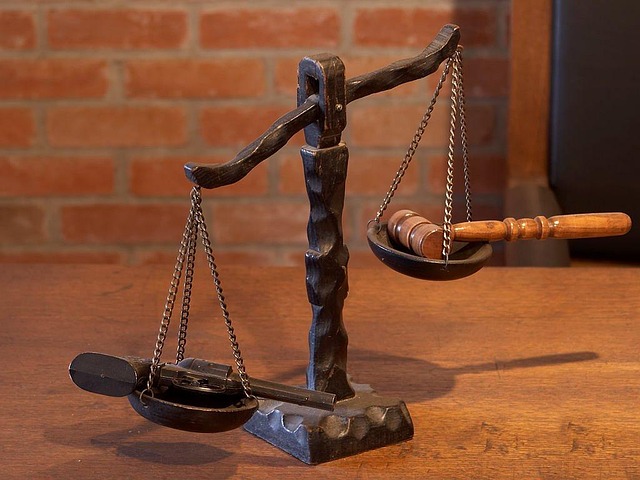Mail wire fraud, a digital age crime involving deceptive scams, requires empaneling a criminal jury for justice. This process meticulously selects impartial community members to understand financial crimes. Courts guide investigations, interpret laws, and ensure fair trials, upholding integrity in complex cases like mail wire fraud. Effective jury selection, guided by judges, is crucial for convicting perpetrators.
Mail wire fraud, a sophisticated form of cybercrime, has become an increasingly prevalent threat in our digital age. This article offers a comprehensive guide to understanding this insidious scheme, exploring its various facets through the lens of legal proceedings. We delve into the intricate process of empaneling a criminal jury, analyzing how courts navigate these complex cases, and examining strategies for successful prosecution. By dissecting the legal framework and jury selection process, we aim to shed light on the challenges and insights in convicting perpetrators of mail wire fraud.
- Understanding Mail Wire Fraud: A Comprehensive Overview
- The Legal Framework: How Courts Handle These Cases
- Jury Selection Process: Ensuring Impartiality and Competence
- Convicting the Culprits: Strategies for a Successful Trial
Understanding Mail Wire Fraud: A Comprehensive Overview

Mail wire fraud is a sophisticated crime that has become increasingly prevalent in today’s digital age. It involves using deceptive methods to manipulate individuals into transferring money or sensitive information via electronic means, often through email or wire transfers. This type of fraud has evolved from simple phishing schemes to complex operations targeting both individuals and organizations. Understanding the process behind mail wire fraud is crucial for both victims and those involved in white collar defense.
The typical process begins with a scammer carefully crafting an intricate scheme, often impersonating a trusted entity within philanthropic or political communities. They may use legitimate-looking emails, websites, or even phone calls to deceive their targets. Once trust is established, the fraudster guides the victim through all stages of the investigative and enforcement process, strategically introducing urgency or threats to expedite the transfer of funds or access to personal data. By the time the victim realizes the deception, significant financial losses or security breaches may have occurred. The Process of Empaneling a Criminal Jury plays a vital role in holding perpetrators accountable for these crimes, ensuring justice is served and potential future incidents are deterred.
The Legal Framework: How Courts Handle These Cases

When it comes to mail wire fraud cases, the legal framework involves a complex interplay between law enforcement, prosecutors, and courts. The process of empaneling a criminal jury is a crucial step in ensuring a fair trial for the accused. This involves selecting a group of individuals from the community who will evaluate the evidence presented by both the prosecution and general criminal defense attorneys. The court ensures that these jurors are impartial and possess the knowledge to understand the intricacies of financial crimes.
Throughout all stages of the investigative and enforcement process, courts play a pivotal role in guiding the case towards justice. They interpret laws, rule on admissibility of evidence, and instruct juries on legal principles related to mail wire fraud. This meticulous approach guarantees that the rights of both the victims and the accused are protected, fostering a sense of fairness and integrity within the judicial system.
Jury Selection Process: Ensuring Impartiality and Competence

The Process of Empaneling a Criminal Jury is a critical step in any high-stakes case, ensuring that justice is served with impartiality and competence. This meticulous process involves selecting individuals from the community who can set aside personal biases and prejudices to make fair judgments. The general criminal defense strategy heavily relies on this unbiased jury, as their decisions can significantly impact the outcome of the trial.
During jury selection, potential jurors are rigorously evaluated through a series of questions aimed at uncovering any preconceived notions or conflicts of interest. This thorough screening is essential in all stages of the investigative and enforcement process, ensuring that the final jury comprises individuals capable of rendering an unbiased verdict. The judge plays a pivotal role in guiding this process, while attorneys from both sides actively participate to challenge or accept potential jurors, shaping the composition of the ultimate decision-makers in their cases.
Convicting the Culprits: Strategies for a Successful Trial

When it comes to convicting perpetrators of mail wire fraud, a successful trial relies heavily on the process of empaneling a criminal jury. This involves selecting a fair and impartial group of individuals who will listen to the evidence presented and render a verdict based on the facts. The judge plays a crucial role in ensuring this process is conducted impartially, by carefully screening potential jurors through a series of questions designed to uncover biases or conflicts of interest.
Avoiding indictment should not be a strategy for either the prosecution or defense. Instead, focusing on presenting a robust case that highlights the respective business practices and actions of the accused can lead to a just outcome. General criminal defense tactics, such as challenging the admissibility of evidence or questioning witness credibility, may help in defending against these charges. However, it is essential to remember that the goal should be to establish the truth and deliver justice within the confines of the law.
Mail wire fraud, a sophisticated criminal activity, demands a multifaceted approach to combat. Understanding the intricate mechanisms of this crime is the first step. The legal framework, as outlined in this article, plays a pivotal role in bringing perpetrators to justice. From jury selection, which involves the meticulous process of empaneling a criminal jury, to successful prosecution strategies, each element contributes to ensuring impartiality and delivering justice. By harnessing these tools, we can navigate the complexities of mail wire fraud cases and create a safer financial environment.






